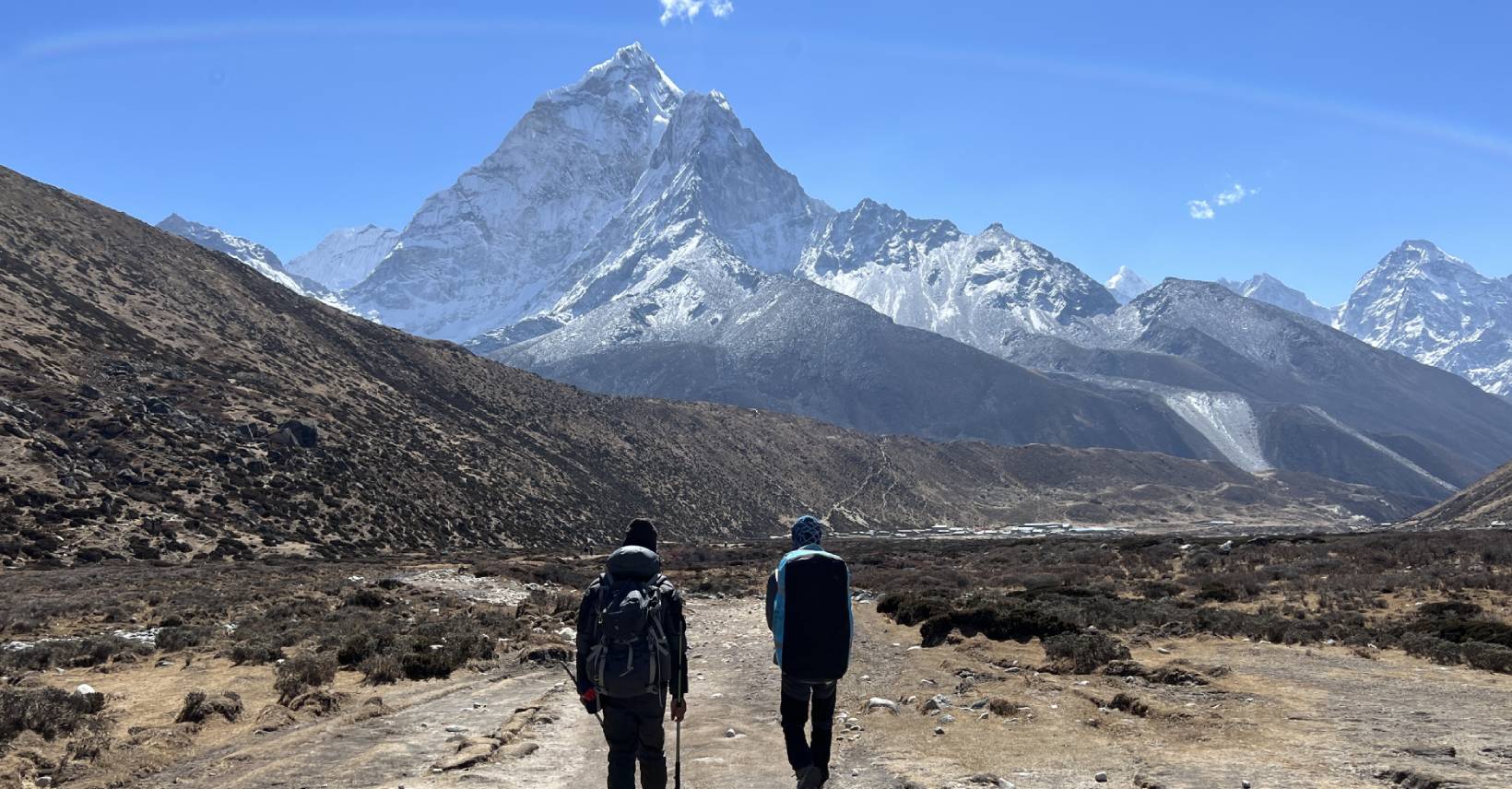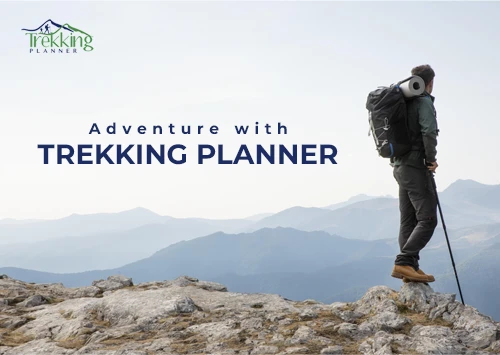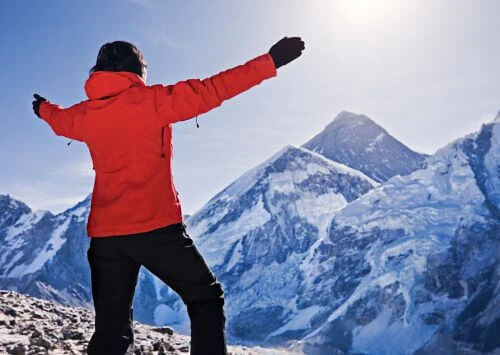When visiting Nepal for first time, here are some travel tips you should be aware of.
If you're traveling to Nepal for the first time, here are some travel tips that you should keep in mind to ensure a safe, enjoyable, and memorable trip.
In this blog, we are going to be talking about some of the details before traveling to Nepal. Here are some of the details.
Get a Visa.
All visitors to Nepal require a visa, which can be obtained upon arrival at the airport or at a Nepalese Embassy or consulate in your home country. You will need to bring your passport, a  passport-sized photo, and payment for the visa fee. Visa fees vary depending on the length of your stay, so it's important to check the current fees before you travel.
passport-sized photo, and payment for the visa fee. Visa fees vary depending on the length of your stay, so it's important to check the current fees before you travel.
Sim Card.
Getting a local SIM card is easy in Nepal, and it's recommended for travelers to stay connected. There are several providers, such as Ncell, Nepal Teleco m, and Smart Telecom, that offer affordable SIM cards with data and call services. You can purchase a SIM card from their shops or kiosks, and you'll need to show your passport and provide a passport-sized photo. It's important to note that some areas of Nepal may not have strong network coverage, especially in remote regions. (Trekking Planner Nepal provides a SIM card for their customers on arrival.)
m, and Smart Telecom, that offer affordable SIM cards with data and call services. You can purchase a SIM card from their shops or kiosks, and you'll need to show your passport and provide a passport-sized photo. It's important to note that some areas of Nepal may not have strong network coverage, especially in remote regions. (Trekking Planner Nepal provides a SIM card for their customers on arrival.)
Travel Map and Navigation.
Navigating Nepal can be a challenge, especially if you're not familiar with the local terrain and transportation options. It's recommended to carry a physical map and download offline maps on your phone, as well as familiarize yourself with the local transportation options such as buses, taxis, and tuk-tuks. It's important to note that traffic in urban areas can be chaotic, so be cautious when crossing roads and always use designated crossings. (Trekking Planner Nepal provides maps and all the navigation services for our clients.)
First Aid and Safety.
It’s recommended to carry a basic first aid kit when traveling to Nepal, especially if you plan to trek or engage in outdoor activities. Some essentials to include are bandages, antiseptic cream, pain relievers, and altitude sickness medication. It's also important to take precautions to stay safe, such as avoiding traveling alone at night, keeping your valuables secure, and following local customs and laws. Trekking Planner Nepal provides all the first aid kits and oximeters and arranges every piece of equipment required for the trek.
Privacy Issues.
Nepal is generally a safe country for travelers, but it's important to take precautions to protect your privacy and personal information. Be cautious when sharing personal information online or with strangers, and avoid carrying sensitive documents or large amounts of cash. It's also recommended to use a VPN when accessing the internet to protect your online privacy. (Trekking Planner Nepal's first concern is privacy.)
People and Friendliness.
Nepalese people are generally friendly and welcoming to visitors, and hospitality is an important part of the local culture. It's common to be greeted with "Namaste" (hello) and to receive offers of help or hospitality. However, it's important to respect local customs and traditions and avoid behaviors that may be considered disrespectful or offensive. It's also important to note that language barriers can be a challenge, especially in remote regions where English may not be widely spoken.
Prepare for the Altitude.
Many popular destinations in Nepal, such as Kathmandu and the Everest Base Camp Trek, are located at high altitudes. Altitude sickness can be a serious condition, so it's important to acclimatize gradually by spending a few days at lower altitudes before ascending higher. It's also important to drink plenty of water and avoid alcohol, which can dehydrate you. (We provide oximeters and well-trained guides for the services so that our clients get stress-free during the treks.)
Dress Appropriately.
Nepal is a conservative country, and it's important to dress modestly and respectfully, especially when visiting religious sites. Women should cover their shoulders and knees, and men should avoid wearing shorts. You should also dress in layers to prepare for changes in temperature.
Be aware of cultural Customs.
Nepal has a rich culture and many customs that may be unfamiliar to Western visitors. For example, it's considered impolite to touch someone's head, and it's important to remove your shoes before entering a temple or home. It's also important to show respect to the local people and their traditions.
Stay safe.
Nepal is a safe country for travelers, but it's important to take precautions to stay safe. Avoid traveling alone at night, especially in urban areas, and keep your valuables secure. It's also a good idea to carry a copy of your passport and other important documents with you.
Try the local food.
Nepalese cuisine is delicious and varied, with many vegetarian options. Be adventurous and try local dishes such as momos (steamed dumplings), dal bhat (lentil soup with rice), and chow mein (stir-fried noodles).
Learn some Nepali phrases.
Nepali is the official language of Nepal, and learning some basic phrases can help you communicate with locals and show respect for their culture. Some useful phrases include "Namaste" (hello), "Dhanyabad" (thank you), and "Khana milecha?" (Is there food?)
Take a guided trek.
Trekking is a popular activity in Nepal, and taking a guided trek can help you navigate the terrain and learn about the local culture and history. It's important to choose a reputable trekking company and check their credentials before booking.

Respect the Environment.
Nepal is a beautiful country with stunning natural landscapes, and it's important to respect the environment by not littering or damaging natural habitats. It's also important to follow the Leave No Trace principles, which include packing out all trash and avoiding damaging vegetation.
Be patient and flexible.
Nepal is a developing country with a slower pace of life. Be patient and flexible, and embrace the opportunity to slow down and enjoy the beauty of your surroundings. You may encounter delays or unexpected changes, but these can often lead to new and exciting experiences.







